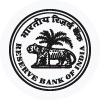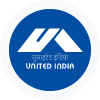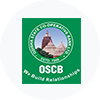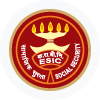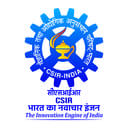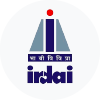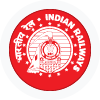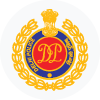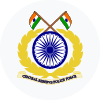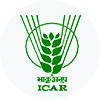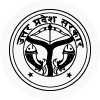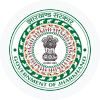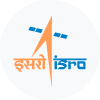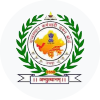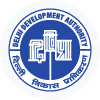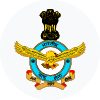NABARD Grade A Mock Test 2025
An essential resource for candidates getting ready for the fiercely demanding NABARD Grade A exam is the NABARD Grade A Mock Test 2025. These practice exams provide a forum for candidates to assess and improve their preparation by simulating the real exam setting. These practice exams assist candidates in becoming familiar with the format, question types, and time limits of the real exam by mimicking these elements. This helps candidates manage their time more skillfully on the real exam. Furthermore, by taking the mock exams, candidates can assess their present level of competence and pinpoint their areas of strength and weakness in several areas, including reasoning, English language, numerical aptitude, and agriculture and rural development.
Free NABARD Grade A Mock Test 2025
Those who take the NABARD Grade A Mock Test 2025 can monitor their progress over time by receiving an immediate performance evaluation. Through comprehensive performance analysis and question-specific solutions, candidates can identify areas in need of development, allowing them to hone their study techniques and concentrate on problem areas. Aspirants' confidence and exam-taking skills are bolstered by this repeated process of practice and analysis, which eventually produces superior outcomes.
NABARD Grade A Exam 2025 For Phase 1
1st Mock Test Free For NABARD Grade A Exam 2025 For Phase 1
10 Mock Test For NABARD Grade A Exam 2025 For Phase 1
Total Marks: 100
Total Questions: 200
Duration: 2 hours
NABARD Grade A Exam 2025 For Phase 2
10 Mock Test For NABARD Grade A Exam 2025 For Phase 2
Total Marks: 50
Total Questions: 30
Duration: 2 hours
Benefits Of NABARD Grade A Mock Test Series 2025
- You can get a solid grasp of the important topics and the types of questions on the NABARD Grade A exam by taking it on a regular basis. You can prioritize your rewrite and concentrate on the crucial topics with the help of this. Should such questions arise during the actual exam, you will also be able to respond to them quickly and efficiently.
- Since it can take a lot of effort to rewrite the syllabus on a regular basis, many applicants choose not to do it. For further efficiency and simplification, consider using the NABARD Grade A practice exams. Thus, if you have studied a significant portion of your NABARD Grade A course, you can evaluate your knowledge by taking the practice exams for Grade A.
- The NABARD Grade A practice exams help you get comfortable with the structure, duration, level of difficulty, time constraints, and pressure of the actual exam by simulating an actual exam environment. If you do this, you might fare better on exam day.
Steps To Attempts For NABARD Grade A Mock Test 2025
To attempt the free online mock test for NABARD Grade A, follow these steps:
Step 1: Visit https://www.practicemock.com/, the official PracticeMock website.
Step 2: Create an account or register for one.
Step 3: Go to the website's 'Free Mock Test' area.
Step 4: Select the "NABARD Grade A " Mock Test Series" option.
Step 5: From the list of test series available, choose "NABARD Grade A".
Step 6: Press 'Take Test Series' to start the "NABARD Grade A" Mock test.
Step 7: You can view your results right away after finishing the NABARD Grade A Mock Test.
Why Student Practice form Practicemock NABARD Grade A Mock test?
Taking NABARD Grade A mock tests is an important part of preparation for several reasons. Here's why students should include them in their study routine:
Familiarity with Exam Pattern
Mock tests are designed to replicate the actual exam pattern. This helps students get familiar with the types of questions asked, the distribution of marks, and the time constraints they will face on the actual day.
Time Management
One of the biggest challenges in competitive exams is managing time effectively. Mock tests help students practice pacing themselves throughout the exam, ensuring they can complete all sections within the allotted time. This can reduce exam-day anxiety and improve efficiency.
Assessing Preparation Level
Taking mock tests helps students assess their level of preparation. They can identify strong areas where they are performing well and weak areas where they need to focus more. This self-assessment helps in refining study strategies.
Identifying Knowledge Gaps
Mock tests highlight specific areas of weakness or topics that require more attention. For instance, if a student consistently struggles with a particular section (e.g., Quantitative Aptitude or English Language), they can revise and practice those sections more intensively.
Building Exam-Day Confidence
Practicing under exam-like conditions helps build confidence. The more mock tests a student takes, the more comfortable they will be with the exam format, making them less nervous when the actual exam day arrives.
Improved Speed and Accuracy
By taking multiple mock tests, students can work on improving both speed and accuracy, two crucial factors in competitive exams. Over time, they will learn to make quick decisions while minimizing errors.
Simulation of Actual Exam Stress
Mock tests provide an opportunity to experience the stress and pressure of an actual exam in a controlled setting. This helps students to develop coping strategies, reducing performance anxiety on the real exam day.
Review and Learn
After taking a mock test, reviewing mistakes is crucial. Students can analyze the test, understand where they went wrong, and learn from their errors. This process helps improve performance over time.
Increased Focus on Key Topics
When taking mock tests, students often encounter frequently asked questions and important topics. This can help them prioritize certain subjects or sections that are more likely to appear in the real exam.
Track Progress
Regularly taking mock tests helps track progress over time. If scores improve with each test, it boosts motivation and confirms that the preparation is on the right track.
In summary, mock tests are a crucial tool for NABARD Grade A aspirants as they offer valuable practice, help identify areas for improvement, and help build the necessary skills for the real exam.
NABARD Grade A Exam Pattern 2025 Phase 1
Total Marks: 200
Total Questions: 200
Total Time: 120 minutes
| NABARD Grade A Exam Pattern 2025: Phase 1 |
| S.No. | Name of the Test | Questions | Marks | Version | Total Time |
| 1 | Test of Reasoning | 20 | 20 | Bilingual – Hindi and English except for the English language Section | Composite time of 120 Minutes for all the tests together |
| 2 | English Language | 30 | 30 |
| 3 | Computer Knowledge | 20 | 20 |
| 4 | Quantitative Aptitude | 20 | 20 |
| 5 | Decision Making | 10 | 10 |
| 6 | General Awareness | 20 | 20 |
| 7 | Eco & Soc. Issues (emphasis on Rural India) | 40 | 40 |
| 8 | Agriculture & Rural Development (emphasis on Rural India) | 40 | 40 |
| Total | 200 | 200 | | |
NABARD Grade A 2025 Overview
NABARD - National Bank for Agriculture and Rural Development is the apex body that looks after the development and growth of agriculture in India. The key function is to look after all the agricultural finance related issues with respect to the development of Indian agriculture. The NABARD Grade A officer recruitment is conducted by NABARD to hire young individuals at the manager level to perform the various functions of NABARD.
| Particular | Exam Overview |
| Exam Name | NABARD Grade A |
| Established | July 12, 1982 |
| Conducting Authority | NABARD |
| Chairman: | Dr. Harsh Kumar Bhanwala |
| Full Form of NABARD | National Bank for Agriculture and Rural Development |
| Posts Offered | Asst. Manager in R&SS, RDBS, Rajbhasha Adhikari, Legal |
| Apply Online Date | To be Notified |
| Vacancies | To be Notified |
| Salary | Rs. 62,600 per month |
| Job Location | Pan India |
| Exam Date | To be Notified |
| Application Mode | Online |
| Application Fee | - SC/ST - Rs. 150
- For others - Rs. 800
|
| Selection process stages | - Phase 1 (Prelims)
- Phase 2 (Mains)
- interview
|
| Official Website | www.nabard.org |
 Mock Tests
Mock Tests Category
Category
















